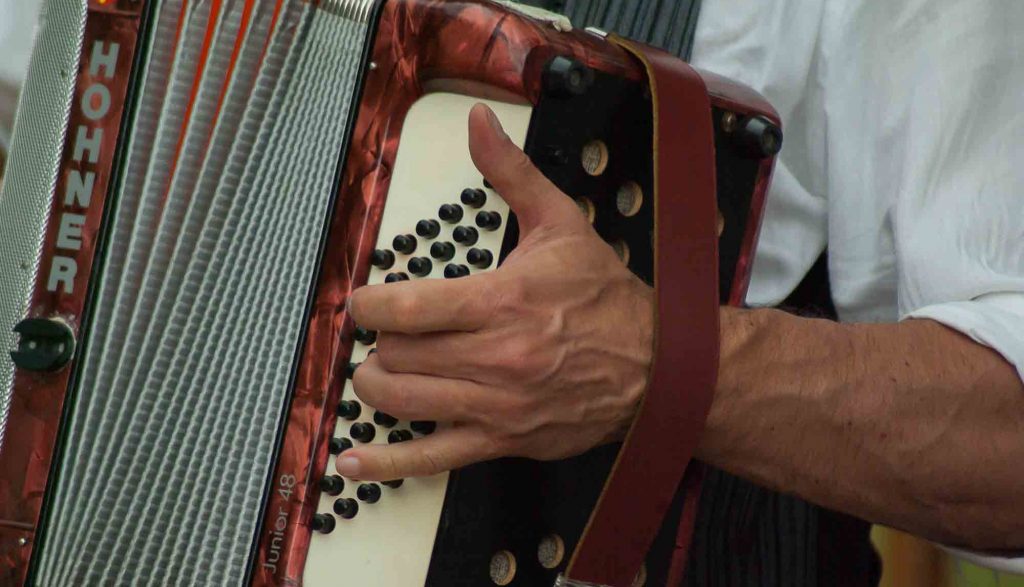Pimba is a Portuguese term misused to qualify a variety of Portuguese popular music, often with a sonority based on Portuguese folk music, whose lyrics often derive from metaphors with sexual meanings or simplistic romantic sentimentality.
Pimba music, like other musical genres, does not have rigid and clear boundaries that allow objectively classifying each song, often ending up obtaining the epithet either through social acceptance or, frequently, through subjectivity.
This musical style is sometimes connoted with Portuguese rurality, but examples of what is currently known as “pimba music” can be found, for example, in the songs that always accompanied the Portuguese magazine, differing only in nature (secondary compared to the dramatization in that place, and main nowadays). Given the difficulty in defining such a recent and heterogeneous concept, it is common to point out some characteristics, the main ones being the choice of superficial themes, with melodies that are easy to follow and that “stay in the ear”.
Harmonization is, in general, with few exceptions, remarkably poor, and the arrangements are extremely derivative (recurring to basic popular music formulas or plagiarizing pop/rock sounds). Over the last few decades, pimba music has clearly established itself as a substitute and “economic” alternative to the traditional dance orchestras or popular music groups present at traditional festivals – it is no longer rare to see performances by musical groups of this type, whose instrumentation consists of a duo or trio of elements equipped with an accordion or synthesizer – often, the performances resemble more karaoke sessions than concerts.
In summary, “pimba” is a genre with an obvious commercial purpose. The use of mischievousness, puns and sexual suggestions is therefore a recurrent theme, and already established in advance, to which are added heartbreak and any other of the so-called “knife and bowl romances”.
The best-known artists of the genre are Ágata, Emanuel, José Malhoa, Maria Lisboa, Nel Monteiro and others, with Quim Barreiros being considered the most successful and apparently most genuine interpreter of Portuguese popular music.
Although songs of this type already existed, at least since the 1980s (“Bacalhau à Portuguesa”, by Quim Barreiros, is a good example), the expression only gained dimension around 1995, when Emanuel, then a musician almost unknown, releases the song “Pimba Pimba”, inspired by a pop/rock song by the group Ex-Votos entitled «Subtilezas Porno-populares», which contained the expression “e Pimba!”, with obvious sexual connotation, in the lyrics.
Pimba music achieved greater popularity thanks to entertainment programs broadcast by several Portuguese television channels such as RTP1, SIC and TVI. During the 1990s, Made In Portugal was a great example.
Since the beginning of the 2010s, Pimba music has been influenced by danceable genres such as funaná (usually mistakenly nicknamed “kuduro”).
The term is considered by specialists in the history of Portuguese popular music as pejorative and discrediting, just like the term of national cançonetismo, despite the general notion in the second half of the 90s and beginning of the 2000s – the period of greatest popularity of the pimba music – to have been that the performers themselves would not mind being connoted with the term.
In terms of private opinions, the musician João Peste, from the band Pop Dell’ Arte, wrote in 2021, on an internet platform, that “pimba music is the maximum expression of Portuguese cultural underdevelopment, homophobia and racism”. This goes against the fact that Quim Barreiros – the interpreter with the most consistent career in terms of popularity of pimba music – has already been accused of using homophobic terms.






Que pimbalhada 🤣🤣🤣
Pimba is based on Portuguese folk music, everyone know that 🙂
interesting! 😍